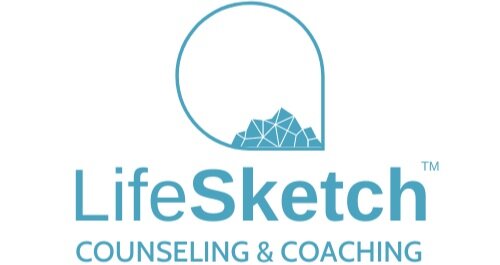
Confidence
Be secure in who you are and where you’re going.
Motivation
Feel energized and excited about life, work or school.
Success
Increase your productivity and performance.
Is ADHD holding you back in your personal, professional or social life?
What is ADHD?
ADHD, Attention Deficit Hyperactivity Disorder (or ADD) is a condition that impairs performance and effectiveness at work or school, socially, and general functioning in life (e.g. adulting). ADHD is characterized by a series of symptomatic behaviors, lifestyle patterns and personality traits relating to inattention, impulsivity, and hyperactivity.
ADHD IS A REGULATORY ISSUE
Ultimately, ADHD can be understood as a regulatory issue, making it difficult to modulate and manage: 1) Attention and Motivation 2) Impulses and Distractions; 3) Planning and Activation.
SIGNS AND SYMPTOMS OF ADHD
In order to diagnose ADHD one has to meet a certain number of criteria or symptoms that persist over time. Below is a summary of diagnostic criteria according to the DSM-5 (the authority on mental health disorders).
Inattention
Missing Details: Often fails to give close attention to details or makes careless mistakes in school, work or other activities.
Short Attention Span: Often has difficulty sustaining attention in tasks or activities (e.g. remaining focused during lectures, conversations or lengthy reading).
Poor Listening: Often does not seem to listen when spoken to directly.
Lack of Follow Through: Often does not follow through on instructions and fails to finish schoolwork, chores, or duties in the workplace (e.g. starts tasks but quickly loses focus and is easily sidetracked)
Disorganized: Often has difficulty organizing tasks and activities (e.g. poor time management, difficulty managing responsibilities, difficulty keeping belongings in order, messy, and failing to meet deadlines).
Avoidance and Procrastination: Often avoids, dislikes, or is reluctant to engage in tasks that require sustained mental effort (e.g. school work, preparing reports, completing forms, lengthy reading or writing papers).
Losing Things: Often loses things necessary for tasks or activities (e.g. school or work materials, pencils, books, tools, wallets, keys, paperwork, glasses, or cellphones).
Easily Distracted: Often distracted by extraneous stimuli or unrelated thoughts.
Forgetful: Often forgetful while completing daily activities (e.g. doing chores, running errands, returning calls, paying bills, keeping appointments).
Hyperactivity
Fidgeting: Often fidgets with or taps hands or feet or squirms in seat.
Restlessness: Often moving (e.g., leaving their seat, running or climbing) in situations where it is inappropriate.
Loud: Often unable to engage or play in leisure activity quietly.
On the Go: Often acting as if driven by a motor (e.g. is unable to be or uncomfortable being still for an extended time, as in a restaurant or meeting; may be experienced by others as being restless or difficult to keep up with).
Overly Talkative: Often talks excessively.
Impulsivity:
Blurting: Often blurts out an answer before a question has been completed (e.g., completes people’s sentences; cannot wait a turn in conversation).
Difficulty Waiting: Often has difficulty waiting for his or her turn (e.g. while waiting in line).
Intrusive: Often interrupts or intrudes on others (e.g. butts into conversation, games, or activities; may start using other people’s things without asking or receiving permission, may take over what others are doing).
The ADHD Brain
ADHD is the most common neurodevelopment disorder meaning the ADD brain develops and operates differently than most. The difference in structure and function of the ADHD brain predominantly involves the frontal lobes, prefrontal cortex and related circuitry which play a key role in cognitive control and executive function. Cognitive control is understood in terms of its relationship of goal-directed behavior (our conscious intentions) vs habits (unconscious behavior) and controlled vs automatic processing. Executive functioning is our intentional and conscious thinking like adaptability (flexibly), planning, self-monitoring, self-control, working memory, time management, and organization. You can think of the prefrontal cortex as the manager or executive of the brain, guiding our behavior based on processing sensory information, memory and emotions.
The Impact of ADHD
If you have officially or unofficially been diagnosed with ADHD but are not addressing the issues, many of the following experiences may be true for you.
What Does ADHD Look Like?
Strained Relationships: Social Impairment and Isolation.
Increased Conflict: Interpersonal and/or professional friction due to impulsive decisions, annoying behaviors and lack of self-awareness that often leads others to feel irritated or frustrated.
Friend-Loss: ADHD increases the tendency for avoidance which leads to withdrawal and isolation. Many relationships are often severed completely(i.e. Ghosting BFFs.) resulting in loneliness and confusion.
Missing Out: Difficulty managing relationships and connections due to an ever-connected world. The smart device revolution, with our constant contact and hundreds of messages on many platforms, has become overwhelming.
Reduced Performance: Not Meeting Expectations, Capacity or Potential.
Productivity: Difficulty getting things done due to challenges around starting tasks and/or following through.
Procrastination: More than time management, people with ADHD often avoid and chronically delay tasks/projects.
Distraction: Reduced ability to regulate concentration, focus and attention.
Chaos: Life is a Mess.
Direction: Feeling rudderless due to challenges around planning, making decisions, setting goals and lacking a clear path for the future or career.
Clutter: Disorganize and in disarray in physical space (e.g. messy backpacks, workspace or a bedroom), digital space (e.g. tracking assignments, missing messages, and overwhelmed by email) and mental space (e.g. feeling flooded, racing thoughts or rumination).
Structure: Lacking routines (especially around sleep, hygiene, work, etc.) and resistant to schedules
No Self Control: Difficulty Regulating Mood, Decisions and Behavior.
Negative Mindset: Incessant negative thoughts from self-doubt to perfectionism.
Self-Sabotage: Consistently making risky decisions and destructive behavior (e.g skipping class, quitting work, or not practicing).
Compulsive Vices: Severe and persistent negative habits, addiction to technology or substances.
Low Motivation: Limited Motivation, Interests or Purpose.
Erratic Energy: Challenges around regulating energy, from feeling lethargic to hyperactive and unable to sit still on command.
Uninterested: Unable or unwilling to focus on or put effort into tasks/subjects that are tedious, mundane or boring. (e.g. the smart kid who gets a D because they don’t like the class.)
Hyper-focus: A tendency to get fixated on something or having difficulty not paying attention to something unimportant (e.g. compulsive phone use, hooked on a video game, or fixated on a particular unimportant work or schools task such as the design of a resume instead of the content).
There’s Hope
Discover how we’ve helped 100’s of students and professionals with ADHD use their own strengths to become the person they want to be.
My name is Scott Treas, founder of LifeSketch, Life Coach and Career Therapist.
I wasn’t diagnosed with ADHD until I was 32 years old, so I have seen the good, the bad and the ugly parts of ADD. I’ve spent a lifetime discovering strategies and tools that helped me overcome ADHD without sacrificing my creativity, energy or the authenticity of who I truly am.
After 15+ years of counseling and coaching, I've developed an integrated model that has helped hundreds of students and professionals, both adolescents and adults with ADD unlock their full potential.
Now my team of relatable experts and I can help you to overcome ADHD and harness your creativity, energy and authenticity in your personal, professional and social life.
ADHD Therapy
ADHD Therapy in the Denver Metro and Virtually Across Colorado
ADHD Coaching
ADHD Coach in Colorado and Virtual Coaching Nationwide.
ADHD Career Counseling
ADHD Career Coach in Littleton, CO and Virtual Career Services Nationwide.
Start Overcoming Your ADHD.
3 Easy Steps to Get Started
Step 1
CONTACT US
Schedule a FREE Phone Call.
Let’s have a conversation about your situation, challenges and goals in your life.
Step 2
LET’S TALK
Decide if we’re a good match.
We’ll help you choose the right LifeSketch program and professional to work with.
Step 3
GET STARTED
Move Forward
We’ll work with you to sort out what’s holding you back and unlock your full potential.
Treatment for ADHD
Medication
Research shows that pharmacotherapy or medication management with a licensed physician, psychiatrist or psychiatric nurse practitioner can be an effective treatment for ADD. *The CDC encourages that drugs should be a last resort due to the potential for negative side effects.
ADHD Therapy
Mental Health Counseling (e.g. Cognitive Behavioral Therapy) has been shown to be effective in providing personal insight and strategies to manage ADHD along with identifying root causes that exacerbate symptoms.
Career Planning
Career Counseling and Job Search Coaching can help students and adults with ADHD identify the career path that is right, along with gaining the confidence and competence for success.
ADHD Coaching
An ADHD Coach can provide students and adults with ADD necessary life skills, tools, protocols and techniques for harnessing ADHD so they can take their personal and professional lives to the next level (e.g. Executive Function Coaching).
About Our Unique And Integrated Coaching Methodology
The LifeSketch Approach
Explore
Clarify who you are and where you want to be.
Sketch
Create a vision and plan for your life.
Challenges
Identify and understand what’s holding you back.
Tools
Develop the needed strategies and skills.
Launch!
Take action and move forward.
FAQs
-
Usually. ADHD is a recognized Mental Health Condition in which psychotherapy is a common and often reimbursable treatment, depending on the licensure of your provider.
-
Maybe. For most services to be covered by insurance the provider has to be licensed (e.g., licensed professional counselor, LPC). Many “coaches” may not have a clinical mental health background.
Luckily, many of our providers here at LifeSketch have such licensure and can provide a superbill for possible reimbursement. *Call to check. -
Adult ADHD is essentially ADHD that is recognized or diagnosed for adults. Many times ADHD in adulthood goes unrecognized due to naturally developed coping mechanisms and/or decreased symptoms of hyperactivity.
-
ADD is an informal term for ADHD, Attention Deficit Hyperactivity Disorder without referring to the Hyperactive type.











